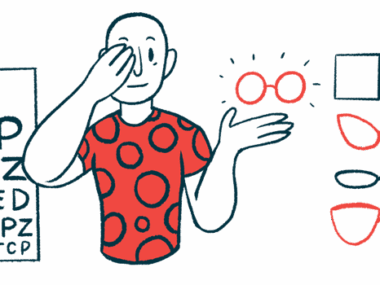Theranexus global offering will fund juvenile Batten disease Phase 3 trial
BBDF became company shareholder with $1.3M share acquisition
Written by |

Theranexus has launched a global offering of around €4 million (about $4.5 million) to help fund the pivotal Phase 3 trial of the company’s investigational therapy Batten-1 for juvenile Batten disease.
The Beyond Batten Disease Foundation (BBDF) acquired €1.15 million (about $1.3 million) in shares before the offering, making it a new shareholder.
Developed in partnership with the BBDF, the pivotal trial is expected to begin enrollment by year’s end at international sites, including the U.S. and Europe. It should be completed by the end of 2026 and is estimated to cost €5 million euros (about $5.6 million) a year.
The trial’s design was approved by the U.S. Food and Drug Administration (FDA) and the European Medicines Agency (EMA), based on positive preliminary safety results from an ongoing Phase 1/2 clinical trial (NCT05174039) that’s testing Batten-1 in adolescents and adults.
Efficacy data after six months showed the treatment reduced nerve cell death and stabilized motor symptoms.
“We will initiate phase 3 of Batten-1 at the end of 2023, using the funds generated by this operation, and building upon FDA and EMA positive opinions, and encouraging preliminary clinical results,” Mathieu Charvériat, PhD, CEO of Theranexus, said in a press release.
Testing Batten-1 for juvenile Batten disease
The study expects to enroll 60 patients with juvenile Batten disease, ages 4-16, who’ll be randomly assigned to receive Batten-1 or a placebo for two years. The therapy will be administered as a liquid that’s better suited for children, instead of the oral capsules used in the Phase 1/2 study.
The trial’s main goal is to assess the treatment’s effect on visual acuity, while evaluating changes in cognition and motor skills, functional abilities in everyday tasks, and quality of life.
“The design of the [Phase 3] study will enable us to communicate a frequent and rich news flow to our shareholders until the product is registered in Europe and the United States,” Charvériat said.
Juvenile Batten disease, also known as CLN3 disease, is caused by mutations in the CLN3 gene, leading to waste fat molecules accumulating of inside lysosomes, cellular compartments responsible for clearing waste products. Nerve cells are particularly affected, resulting in symptoms like progressive visual, motor, and cognitive decline.
Batten-1’s active ingredient is miglustat, a molecule that prevents waste molecules from accumulating within cells and reduces neuroinflammation. Miglustat is approved, under the name Zavesca, for type 1 Gaucher disease, another condition where waste products accumulate in lysosomes.
“We would like to thank the investors involved in this transaction, and in particular the BBDF Foundation, which, in addition to its strong operational and strategic support for the scientific and clinical development of Batten-1 since 2019, is now committed to supporting us by acquiring a stake in the company,” Charvériat said.






